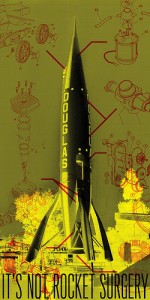Podcast: Play in new window | Download
Subscribe: Apple Podcasts | RSS
 Are engineers born or made? In this episode, Chris and Jeff discuss how engineers acquire their talents.
Are engineers born or made? In this episode, Chris and Jeff discuss how engineers acquire their talents.
- A top-notch engineer is skilled in both the theoretical and practical realms. So how are these talents acquired?
- Exposure to engineering operations seems to be an important component in creating an outstanding engineer.
- In this episode, we reference Daniel Coyle’s book, The Talent Code.
- Mr. Coyle suggests that world-class skills can be acquired through substantial deep-practice, continued passion, and knowledgeable coaching.
- Practice causes additional insulation, called myelin, to form around neural pathways, allowing neural signals to pass more quickly and with greater strength.
- Deep practice consists of focused concentration and repetition of a particular skill that is not yet refined. Such sessions are said to be mentally and physically exhausting.
- Several books reference 10,000 hours of deep practice being required to become a first-class practitioner. This “rule” is based on a paper titled, “The Role of Deliberate Practice in the Acquisition of Expert Performance,” by Dr. K. Anders Ericsson.
- Repeated practice is difficult for engineers, as they are often asked to carry out new tasks that have little in common with prior assignments.
- Deliberate practice requires problems to be “chunked up” into understandable blocks of content that can be internalized.
- Processes need to be slowed down, and frequently repeated, for solid learning to occur.
- Jeri Ellsworth taught herself electronics by trying tons of things, and accepting that failures will occur.
- People who have to “grind” on a solution often understand the problem better than those who get a solution on the first attempt.
- Engineers often rely on their own passions to drive educational and career advancement.
- Typical career paths take engineers away from technical operations just about the time that they reach the 10,000 hour mark.
- Apprenticeships were often used in the past to convey skills from one generation to the next. Chris makes the case for reviving engineering apprenticeships.
- Great teachers have outstanding task-specific knowledge.
- Good instructors are frequently gifted with a strong theory of mind, and can perceive a student’s difficulties.
- Honest feedback from mentors is needed for improved performance, and must be provided in a timely manner.
Thanks to Bjornmeansbear for the rocket photo, titled “It’s not Rocket Surgery.” Podcast theme music provided by Paul Stevenson
Nice episode. Accepting failures and being wrong used to be something I struggled with and when I was younger it discouraged me too much.
Really, it wasn’t until my final year of university that I learned to stop fearing being wrong. I started being more vocal in class if I had a question, doubts, or even wanted to mention a caveat about what the professor was saying. Turns out professors (the good ones anyway) respect that.
While being right is a good feeling, I like to think of it as: “If you’re not wrong at least a third of the time, you’re not pushing yourself to your full potential”. On the episode it was mentioned that in jobs there’s less opportunity to practice and “failure is not an option” is the usual way of things. For that reason I really value hobby projects on my own time, because I can take on greater “project failure” risks in the interest of learning.
I’m reading “So Good they can’t Ignore you” by Cal Newport
http://www.amazon.com/Good-They-Cant-Ignore-You/dp/1455509124/ref=sr_1_1?ie=UTF8&qid=1351620618&sr=8-1&keywords=newport+cal
and it covers some similar material. You might be interested in looking at that as well.
Great podcast guys! I really enjoyed it. It is nice to be able to hear real engineers talk about their profession, which is also obviously your passion.
I am in the same boat – definitely not a born engineer – it took me a lot of time and hard work to develop my skill set. I was also raised on a farm so I have a lot more of the practical side of things than the theory.
Keep them coming!